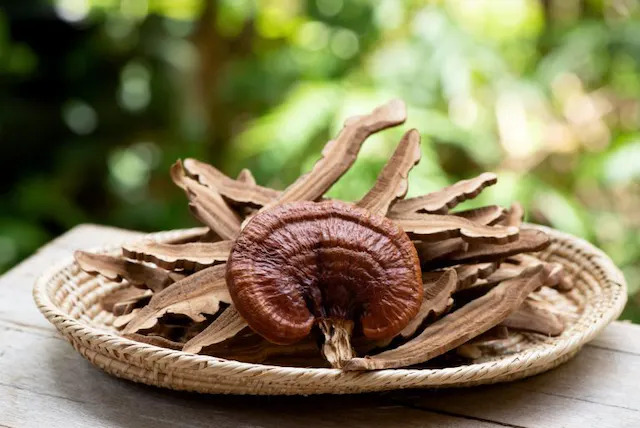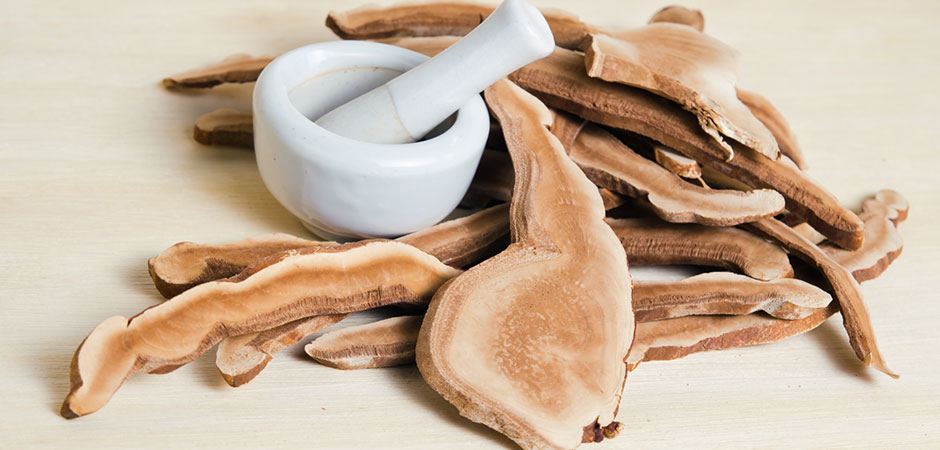Medicinal Mushrooms
Discover 6 Medicinal Mushrooms for Depression
Posted on 7 Nov 2022
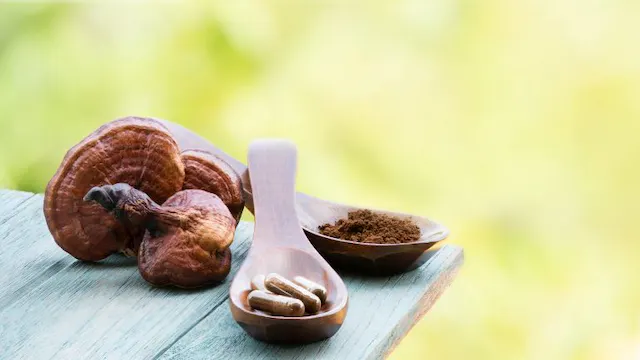
Are you wondering what natural supplements are good for depression? One powerful option to consider is medicinal mushrooms. Medicinal mushrooms can be consumed in a variety of ways. They are often used in the form of extracts or powder. These forms have a higher concentration of active ingredients. That said, you can also use some in cooking, just like culinary mushrooms. Or, you can consume dried medicinal mushrooms by brewing them in a tea. Read on to learn more about several kinds of medicinal mushrooms for depression.
What are Medicinal Mushrooms for Depression?
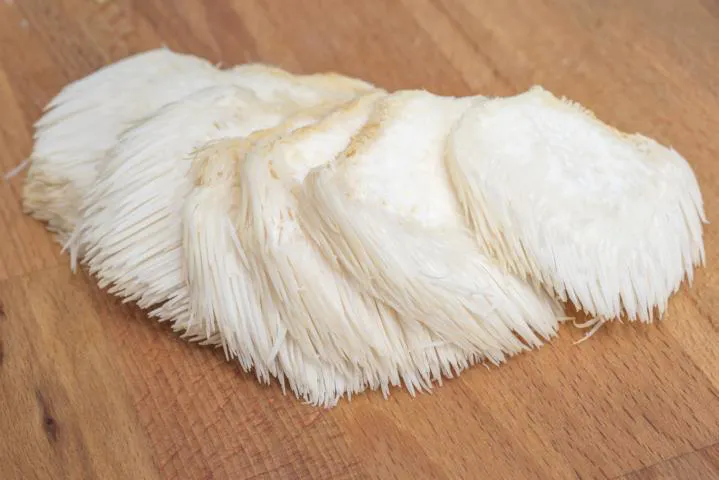 Lion’s mane is one of the most distinctive medicinal mushrooms for depression.
Lion’s mane is one of the most distinctive medicinal mushrooms for depression.Medicinal mushrooms have many health benefits, besides easing depression symptoms. For example, they can help to improve blood sugar levels. They also contain beta-glucans, which studies show help boost immunity. In addition, the high antioxidant levels found in medicinal mushrooms help to reduce inflammation in the body.
Lowering inflammation in the body may reduce the risk of heart disease, cancer, and arthritis. Plus, mushrooms are the only natural plant source of vitamin D. This vitamin helps to strengthen your bones as well as improve your immunity.
So, how does Traditional Chinese Medicine (TCM) view depression and how do medicinal mushrooms help manage depression symptoms?
Depression impacts on organ functions
From a TCM perspective, stagnant qi, or energy, in the body creates an imbalance that causes depression. As TCM physician Lim Sock Ling explains, “Qi (vital energy) stagnation compromises the liver’s qi regulation function, and in turn, affects the spleen function. The spleen is responsible for the intake, processing, and distribution of nutrients from food. As a result, there is a lack of nourishment for the heart and an imbalance of yin, yang, qi, and blood in the organs. The source of the problem lies in the liver, but it affects the heart, spleen, and kidney systems as TCM view the body as a whole.”
In TCM, treating depression involves regulating qi and promoting qi circulation, along with counseling. Treatment modalities include acupuncture and exercise, such as tai chi, qigong, and yoga, in addition to herbal supplements.
Studies have shown that medicinal mushrooms have antioxidant, anti-neuroinflammatory, and neuroprotective effects. The following list contains six mushrooms for managing depression. Many of these have other health benefits, as well. Before trying, see the contraindications and cautions at the end of the article.
Types of Mushrooms for Depression
1. Chaga
Studies have shown that chaga extract can help to prevent the production of cytokines in the body, which cause inflammation. Consuming chaga mushrooms may help alleviate symptoms because depression seems to have a link to chronic inflammation. In addition, the high antioxidant content in chaga mushrooms helps combat oxidative stress, which helps keep skin younger-looking and your immune system stronger.
2. Cordyceps
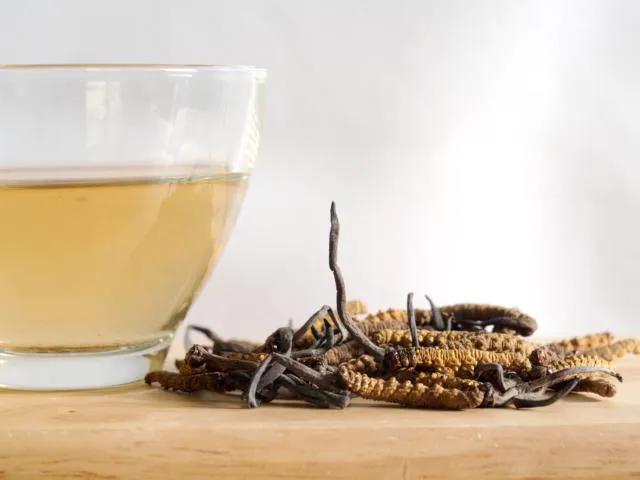 Cordyceps help nourish the kidneys to alleviate symptoms of depression.
Cordyceps help nourish the kidneys to alleviate symptoms of depression. Caterpillar fungus or Cordyceps sinensis is a rare composite of dead caterpillar and fungus stromata. While it’s not taxonomically a mushroom, cordyceps has been considered a medicinal mushroom in TCM and Tibetan practice.
Animal studies have shown that cordyceps may be beneficial for depression management. It benefits the kidneys and lungs. Physician Lim explains that from a TCM perspective, depression affects the kidneys. Because of this, cordyceps may indirectly help alleviate depression. Lab studies have also shown that cordyceps can inhibit the growth of many types of cancer cells, including colon, skin, and liver cancers.
Cordyceps also contains adenosine, a heart-protective compound. Nowadays, you can easily consume cordyceps as a supplement in the form of capsules to reap its health benefits.
3. Lion’s Mane
Lion’s mane mushrooms can improve symptoms of depression, help increase concentration, and alleviate anxiety and irritability. In a small human study and a study on mice, this distinctive-looking mushroom helped improve cognition and memory. In addition, studies show that lion’s mane mushrooms encourage the production of bioprotein nerve growth factors and myelin. These are both crucial to brain health. An imbalance or lack of these in the body can contribute to neurological diseases such as Alzheimer’s and multiple sclerosis.
4. Reishi
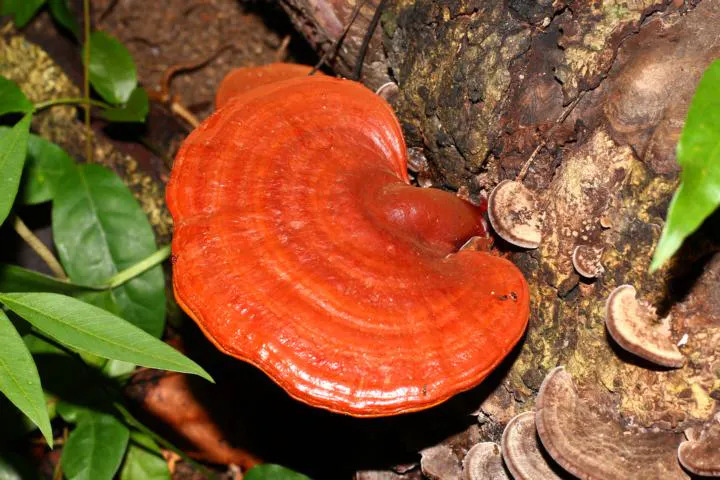 Reishi mushrooms, also known as lingzhi, can help relieve symptoms of anxiety and depression.
Reishi mushrooms, also known as lingzhi, can help relieve symptoms of anxiety and depression. This medicinal mushroom is also known as lingzhi. It contains a compound called triterpene. Mice studies have shown that this compound helps to alleviate symptoms of anxiety, eases depression, and encourages sleep. TCM practitioners use reishi to invigorate qi and calm the mind. In addition, it is used to relieve cough and asthma.
5. Shitake
A study has reviewed the mental health data of 24,000 participants and found a correlation between shitake mushroom consumption and reduced risk of depression. These mushrooms also contain compounds that inhibit the absorption and production of cholesterol in the liver. Research shows that shitakes lower LDL (“bad”) cholesterol in mice. In addition, another study proves that polysaccharides in shitakes helped inhibit the growth of leukemia cells.
6. Wuling Shen
Wuling shen is a traditional TCM treatment for insomnia, trauma, and depression. Studies have also shown that it has antioxidant, liver-protective, and immune-boosting properties.
Safety of Medicinal Mushrooms
Medicinal mushrooms are generally safe to consume. However, you should seek medical advice before consuming medicinal mushrooms. That’s because:
- Physician Lim warns that there is insufficient data on the use of medicinal mushrooms during pregnancy or breastfeeding
- If you have an autoimmune condition, be aware that some of them may cause the immune system to become overactive.
- Studies have shown that high doses of reishi mushrooms may cause an increased risk of bleeding in some people if used before or during surgery. Physician Lim advises, “Stop consumption of reishi at least two weeks before surgery. Those with bleeding disorders should use with caution or consult with a licensed TCM professional before using as it may increase the risk of bleeding in some people.”
- Physician Lim also cautions that chaga mushrooms contain a protein that can prevent blood clotting. If you are taking blood-thinning medication, you should avoid chaga mushrooms.
- In addition, note that there are not sufficient studies on their safety for children.
If you are struggling with depression or anxiety, you may want to consider medicinal mushrooms for depression. Be sure to consult your doctor or licensed TCM practitioner first.
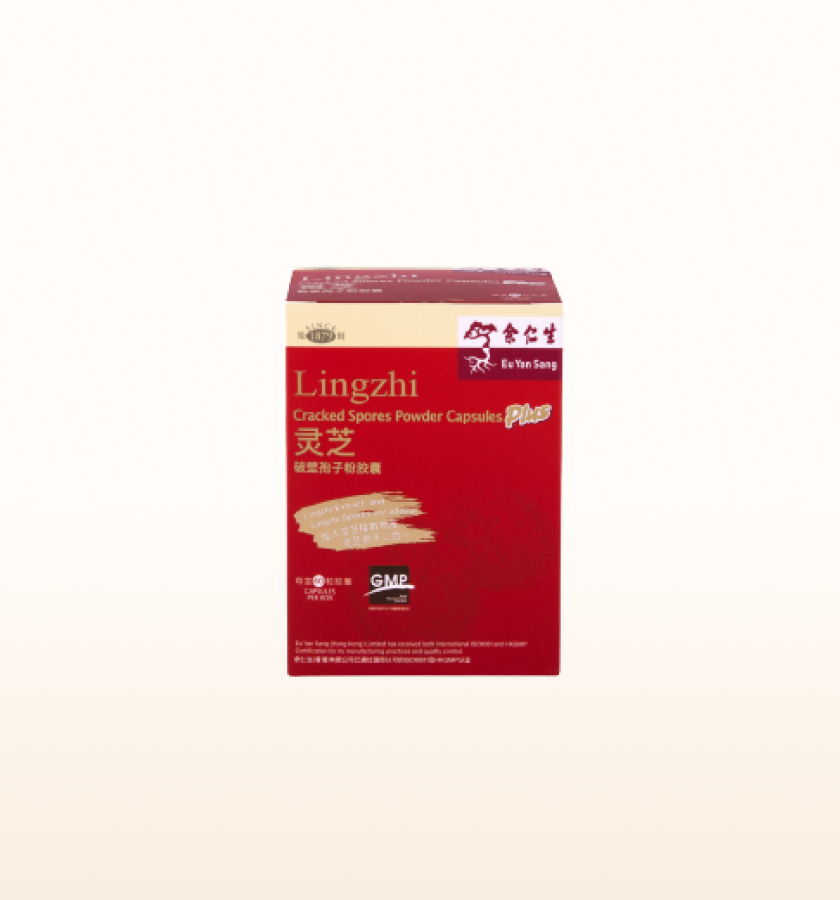
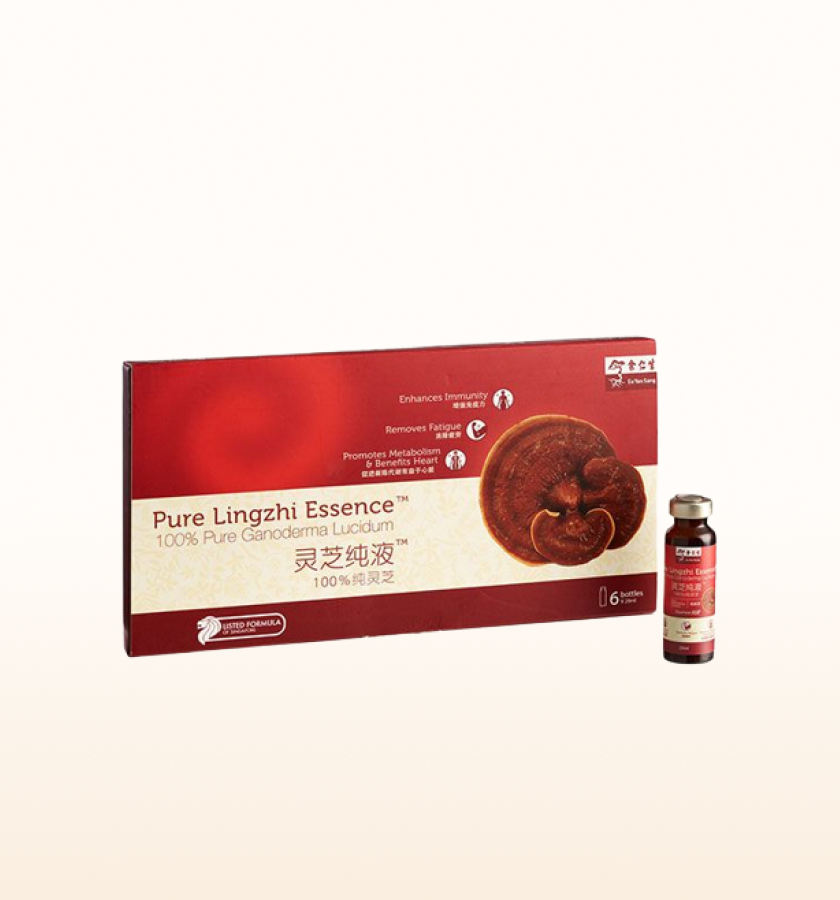
.png)
